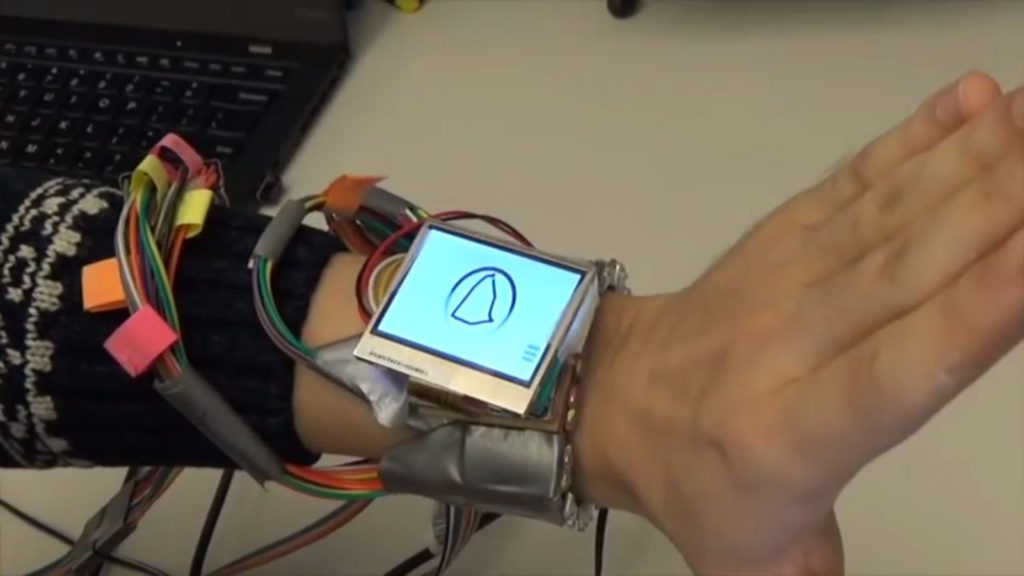Donald Trump’s call for Netflix to remove board member Susan Rice has intensified the Paramount saga, pushing the streaming wars into a political confrontation.
WristWhirl hands-free smartwatch turns your wrist into a joystick

A team from Dartmouth College has developed a novel way to use a smartwatch. Dubbed the WristWhirl, the smartwatch is currently in prototype but allows users to perform touch-screen gestures using only one hand in a continuous motion.
To develop the WristWhirl prototype, researchers observed the intricate movements of the wrist. By using a small group of participants making eight joystick-like movements while standing and walking, researchers were able to record specific gestures.
“While other studies have explored the use of one-handed continuous gestures using smartwatches, WristWhirl is the first to explore gestural input,” explains co-developer Xing-Dong Yang in a blog post.
Participants in the study then had to use their wrist to make four directional movements mimicking flicking a touchscreen. They were also asked to mimic free-form shapes such as a triangle to record the subtle movements within the wrist.
WristWhirl allows smartwatches to be controlled using nothing but wrist flicks and movements
The participants of the study were also asked to create gestures with the hand the watch was on raised in front of them so they could see the pattern they were creating. After this, they were also asked to create the gestures with their hand resting alongside their body.
To measure how accurate the free-drawn paths and shapes were, researchers outfitted the WristWhirl with a US$1 gesture recogniser which recorded a 93.8% accuracy.
As for real world usage, the team suggests users could advantageously select apps, adjust music, navigate maps or even play games using the wrist-based technology.
“Technology like ours shows what smartwatches may be able to do in the future, by allowing users to interact with the device using one hand (the one that the watch is worn on) while freeing up the other hand for other tasks,” concludes Yang.
